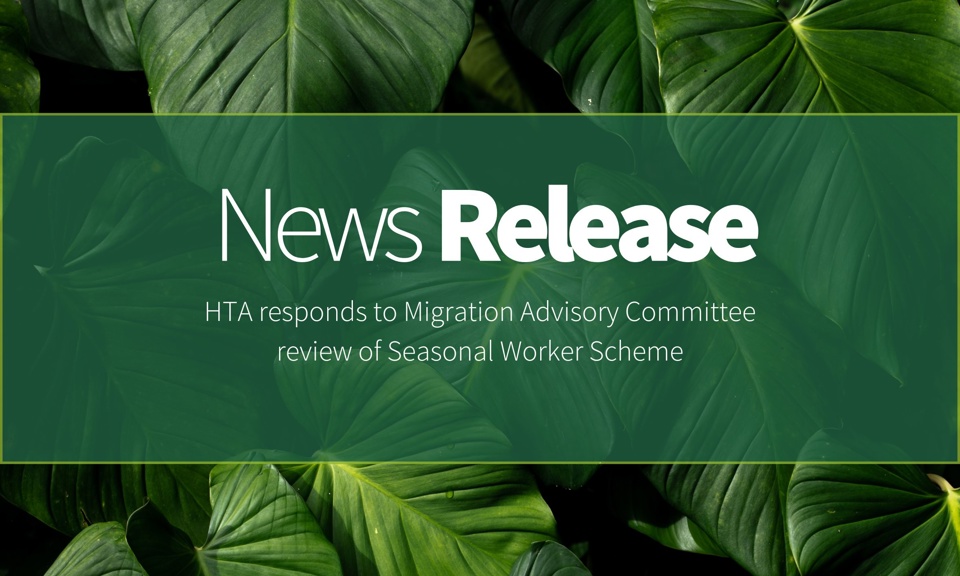HTA responds to Migration Advisory Committee review of Seasonal Worker Scheme

16 July 2024
The Horticultural Trades Association (HTA) welcomes the publication of the Migration Advisory Committee (MAC)'s review of the Seasonal Worker Scheme (SWS), released today. The recommendations, which emphasise the continuation and enhancement of the SWS, are crucial for the future of the UK's environmental horticultural industry.
The HTA submitted evidence to the review last autumn on behalf of its members. The MAC also visited HTA member nurseries as part of the review.
Jennifer Pheasey, HTA Director of Public Affairs, commented:
“The MAC's review highlights the essential role of the Seasonal Worker Scheme in ensuring the stability and productivity of the UK's environmental horticultural sector. As the scheme evolves, it must remain accessible and viable for an industry hit by cost increases and regulatory changes. The HTA has consistently advocated for a more flexible and long-term scheme, and we are pleased to see some of the review’s recommendations reflect this.
“Environmental horticulture is a hugely important industry that delivers green jobs and skills and economic, environmental, social, health, and wellbeing benefits to the UK. It is critical that the government listens to and acts on the sector's needs. We look forward to engaging on what the details of some of the recommendations mean for the sector.
“The HTA remains committed to collaborating with the government and other stakeholders to enhance the SWS and secure the future of the UK's horticultural sector. Ensuring fair treatment and appropriate remuneration for seasonal workers is not only a matter of economic necessity but also an ethical responsibility.”
You can read the full review on the government's website here: www.gov.uk/government/publications/seasonal-worker-visa-review
Key recommendations from the MAC include:
- Continued Operation of the SWS.
- Fairer Work and Pay: To mitigate financial risks, workers are guaranteed at least two months’ pay.
- Enhanced Worker Welfare: Improving transparency, communication, and enforcement of employee rights.
- Increased Flexibility: Making the visa more adaptable to support better planning and maximise worker earnings.
- Future Certainty: Providing clear guidance on the scheme’s future to assist employers and workers in their long-term planning.
- Investment: such as 0% interest loans from the government or increased public investment, could accelerate automation in this sector and, in turn, reduce reliance on seasonal labour.
HTA's evidence submission highlights:
- Long-term Certainty and Automation: While advancements in automation are promising, current technology is not yet sufficient to replace seasonal labour entirely. Long-term certainty in the SWS would help stabilise workforce pressures and encourage investment in automation technology. The sector would benefit from a five-year scheme to allow growers to evaluate labour needs more accurately over time.
- Improved Communication: There is a need for better collaboration between Defra and the Home Office, with a clear, formal definition of roles and responsibilities in labour and immigration matters.
- Visa Extensions and Worker Mobility: Extending the visa period to nine months would maximise the value of seasonal workers to the horticulture sector. It would allow for cross-training and movement between departments and businesses, providing greater stability and efficiency across the growing season.
- Labour Needs and Economic Impact: The HTA's 2021 Wages & Labour benchmarking survey highlighted that UK ornamental growers needed an estimated 7,200 FTE seasonal workers, accounting for 36% of total labour input. A shortage of these workers significantly hampers the industry's ability to expand and support environmental goals such as tackling climate change and carbon reduction.
